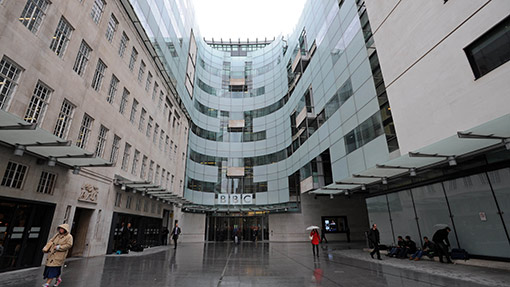Ten key findings of the BBC rural review

The BBC has vowed to raise its game after an independent report criticised its handling of rural affairs.
The review, commissioned by the BBC Trust and led by Heather Hancock, who formerly chaired the BBC’s rural affairs committee, looked at the impartiality of the corporation’s coverage of rural areas in the UK, across TV, radio and online.
Read also: BBC failing to capture impact of TB on farmers
Here are 10 key findings of the BBC rural coverage review:
- BBC rural affairs coverage of bovine TB and the badger cull has “too many fluffy badgers”, which was felt to skew the argument in favour of the anti-cull lobby. People complained this did not give an impartial impression and asked: where were the pictures of sick badgers with TB, infected cows being shot, or a distraught family coming to terms with the loss of livestock?
- BBC 1’s Countryfile and Radio 4’s Farming Today and even The Archers are the “rural gems” of the corporation’s rural affairs coverage. Countryfile was described as the “flagship” programme, but it bears a “high burden” for rural coverage, which should be spread to other programmes. Occasionally, viewers noted a lack of “grittiness” in its reporting and that its presenters too often gave an “impression of visiting the countryside and not being of the countryside”.
- In England, an estimated 2m hectares of land is managed for conservation as a result of shooting, which is “legal” and “pervasive” across the countryside and “not an exclusive preserve of the rich or the landowner. Yet many rural landowners consider the BBC to have a negative position on field sports and feel there is a “gulf in understanding between the BBC and a significant section of the rural community”.
- Audience members feel the BBC often gives weight to a small number of organisations for its rural coverage. When asked who their top contacts would be for a rural story, BBC programme makers or journalists often quoted the RSPB first, followed by the National Trust, and frequently, but not exclusively, the NFU. This is made more controversial because there is “some tension in relationships between the RSPB and farmers/landowners, and with the shooting community.
- Stories are “too often viewed through the lens of environmentalism”. When rural issues are covered, because of the absence of a specialist rural correspondent, the newsroom delegates the story to the environmental analyst as “the best fit”. For example, responsibility for reporting the £3.5bn of CAP allocation was handed to the BBC’s environment analyst, Roger Harrabin.
- Rural affairs coverage in Scotland, Wales and Northern Ireland is “impressive” but audiences felt on occasion there is a metropolitan bias and a London bias in network news coverage of rural England. The BBC Trust also highlighted a “deficit” in reporting of rural affairs in the BBC’s UK-wide coverage of rural England.
- A disproportionate amount of time is being given to celebrities instead of experts. Audiences did not appreciate the use of celebrities to highlight stories, such as Brian May on the badger cull. There is scope for more and better use of science to explain important stories.
- Audiences feel BBC network news coverage can sometimes be “squeamish” or “too simplistic”. On reporting of contentious stories, such as the badger cull, there is too much focus on protests rather than tackling the issues head-on.
- The coverage of this year’s winter floods was labelled a “missed opportunity”. When the floods began the BBC news response was driven by what was happening in parliament. The consequences for farmland were an underreported issue for rural UK until the floods reached the Thames Valley. One respondent noted: “It changed when the effluent met the affluent.”
- Things can get better. The BBC could do a more accurate and comprehensive job with deeper expertise, more co-ordination and collaboration, and by reflecting a broader perspective on rural lives, rural issues and the part the countryside plays in national life.
Responding to the report – which can be read here – the BBC said: “We take our commitment to the reporting of rural affairs very seriously and welcome the report’s endorsement of our programming and overall impartiality.
“While the report finds overall we do a good job reflecting and reporting rural affairs there are areas where we can do better and we have committed to a range of steps to help improve the coverage further.”
